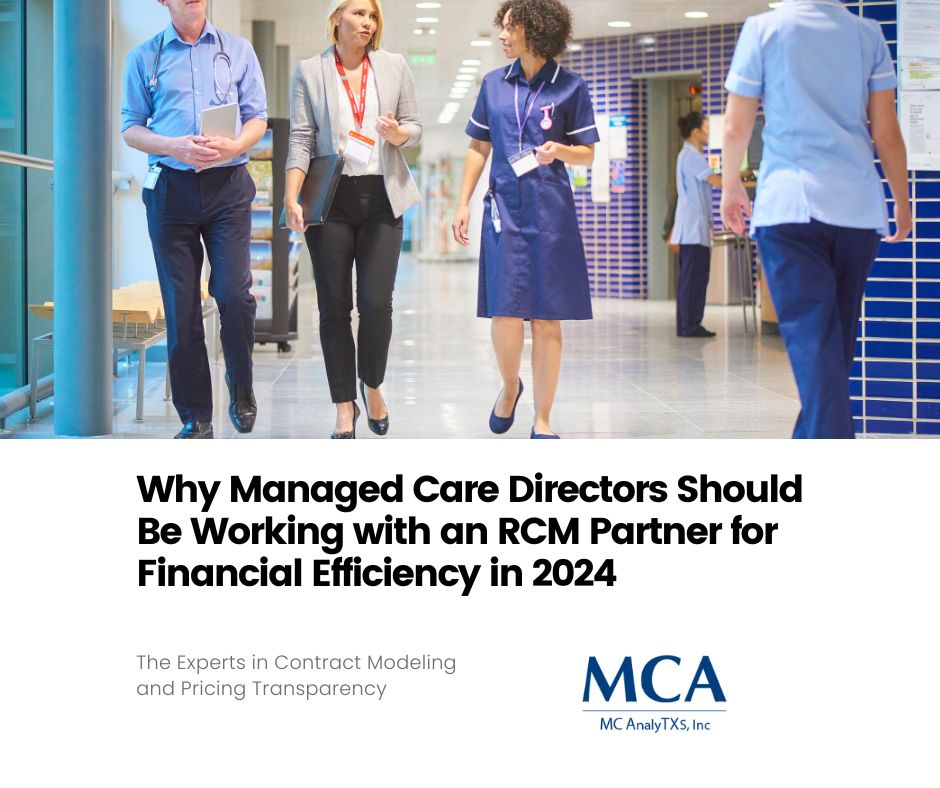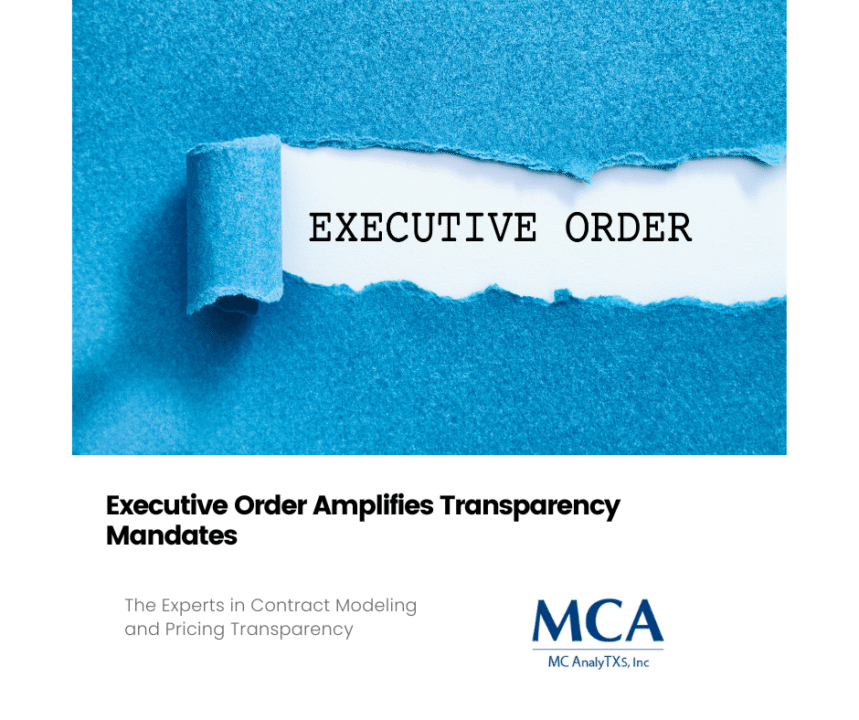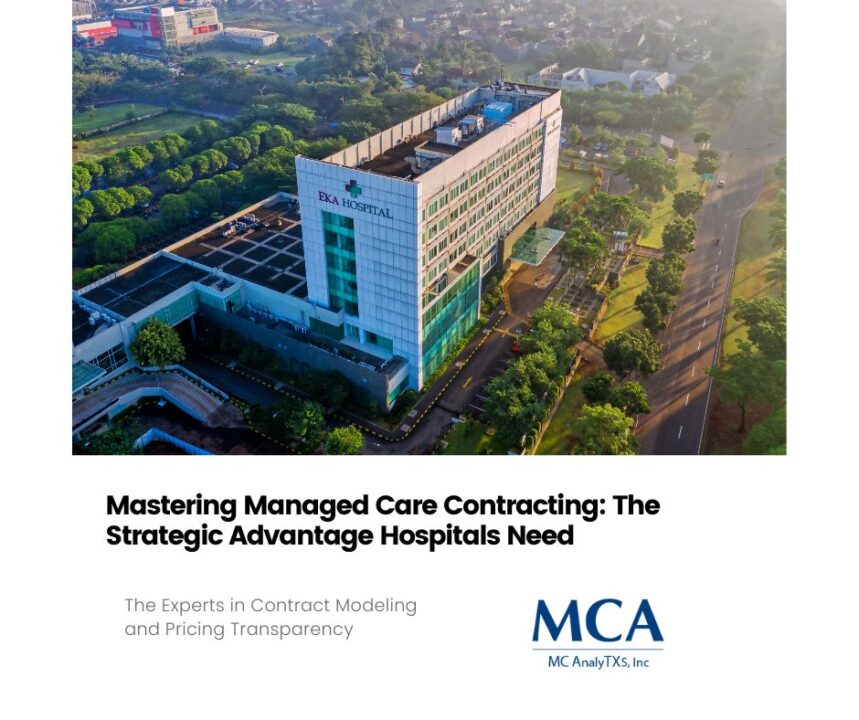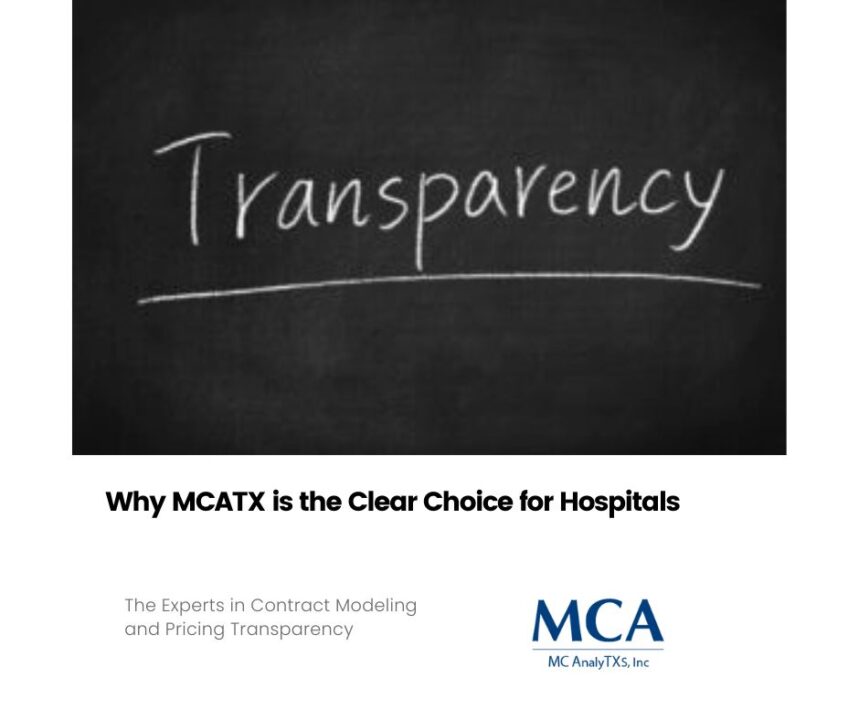
Navigating the Complex Landscape of Healthcare Revenue Cycles: Efficiency Strategies from Leading Health Systems
May 28, 2024
Perpetual Cost-Improvement Mindset: Proven Strategies for Hospital CFOs
June 4, 2024Why Managed Care Directors Should Be Working with an RCM Partner for Financial Efficiency in 2024
The healthcare industry is evolving at a rapid pace, presenting new challenges and opportunities for managed care directors. As we navigate through 2024, financial efficiency remains a critical focus, driving the need for strategic partnerships. One of the most impactful alliances a managed care director can forge is with a Revenue Cycle Management (RCM) partner. This article delves into the reasons why collaborating with an RCM firm is essential for financial efficiency and long-term success in the managed care sector.
Understanding the Role of Managed Care Directors in 2024
Managed care directors play a pivotal role in overseeing the delivery of healthcare services while managing costs and ensuring quality care. Their responsibilities include:
- Contract Negotiations: Managing agreements with providers and payers to ensure favorable terms.
- Compliance: Adhering to evolving healthcare policies and regulations.
- Financial Oversight: Monitoring budgets, controlling costs, and optimizing revenue cycles.
- Quality Assurance: Ensuring that care delivery meets established standards.
In 2024, these responsibilities are further complicated by rapid policy changes, technological advancements, and the increasing pressure to deliver cost-effective yet high-quality care. This evolving landscape necessitates a more robust approach to financial management, making the role of managed care directors more challenging yet crucial.
The Critical Need for Financial Efficiency
Financial efficiency is paramount for the sustainability of managed care organizations. Key financial challenges in 2024 include:
- Rising Healthcare Costs: Increasing operational and medical costs require stringent financial oversight.
- Payment Reforms: Transition to value-based care models demands new strategies for revenue cycle optimization.
- Revenue Leakages: Inefficient billing and coding practices lead to significant revenue losses.
- Regulatory Compliance: Non-compliance with healthcare regulations can result in hefty fines and operational disruptions.
Optimizing the revenue cycle is essential for addressing these challenges and ensuring the financial health of managed care organizations. This is where an RCM partner becomes invaluable.
The Benefits of Working with an RCM Partner
Partnering with a specialized RCM firm offers several advantages:
Expertise and Technology Integration
RCM partners bring industry-specific expertise and advanced technology solutions that streamline revenue cycle processes. They offer:
- Automated Billing Systems: Reducing manual errors and accelerating payment cycles.
- Data Analytics: Providing actionable insights to improve financial performance.
- Compliance Tools: Ensuring adherence to regulatory requirements.
Improved Cash Flow and Reduced Operational Costs
An RCM partner can significantly enhance cash flow by:
- Optimizing Claim Submissions: Ensuring timely and accurate claim submissions to reduce denials.
- Accelerating Payments: Streamlining processes for quicker reimbursement from payers.
- Reducing Administrative Burden: Allowing in-house staff to focus on core functions by outsourcing complex revenue cycle tasks.
Key Considerations When Choosing an RCM Partner
Selecting the right RCM partner is crucial for maximizing the benefits of such a partnership. Key factors to consider include:
Technology Capabilities
Ensure the RCM partner uses state-of-the-art technology that integrates seamlessly with your existing systems. Look for features like:
- Automated Workflows: To minimize manual interventions.
- Real-Time Reporting: For up-to-date financial insights.
Industry Expertise
Choose an RCM partner with a proven track record in the managed care sector. Their knowledge of industry-specific challenges and regulations will be invaluable.
Cultural Fit
A successful partnership requires alignment in values and work culture. Ensure that the RCM partner understands your organization’s goals and is committed to achieving them collaboratively.
Measuring ROI
Establish clear metrics to evaluate the success of the partnership. Key performance indicators (KPIs) might include:
- Reduction in Claim Denials: Measure the decrease in denied claims over time.
- Increase in Collections: Track the improvement in overall collections.
- Improved Cash Flow: Monitor the acceleration of payment cycles.
Conclusion
In 2024, managed care directors face unprecedented challenges that demand innovative solutions for financial efficiency. Partnering with a Revenue Cycle Management firm offers a strategic advantage, providing the expertise and technology needed to optimize revenue cycles, reduce costs, and ensure compliance.
By collaborating with an RCM partner, managed care directors can focus on their core mission—delivering high-quality care—while securing the financial health of their organizations. If you’re ready to explore the benefits of an RCM partnership, contact us today to learn more about our tailored solutions for managed care organizations.
For more information: Schedule a consultation or Join our upcoming webinar on Thursday, June 20th at 1 pm CST.





